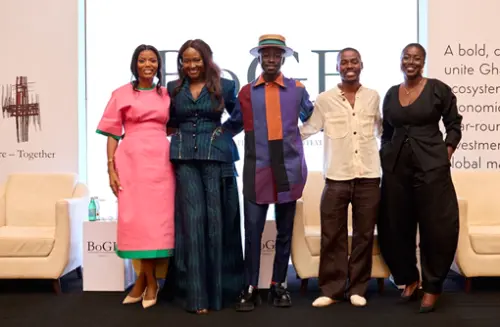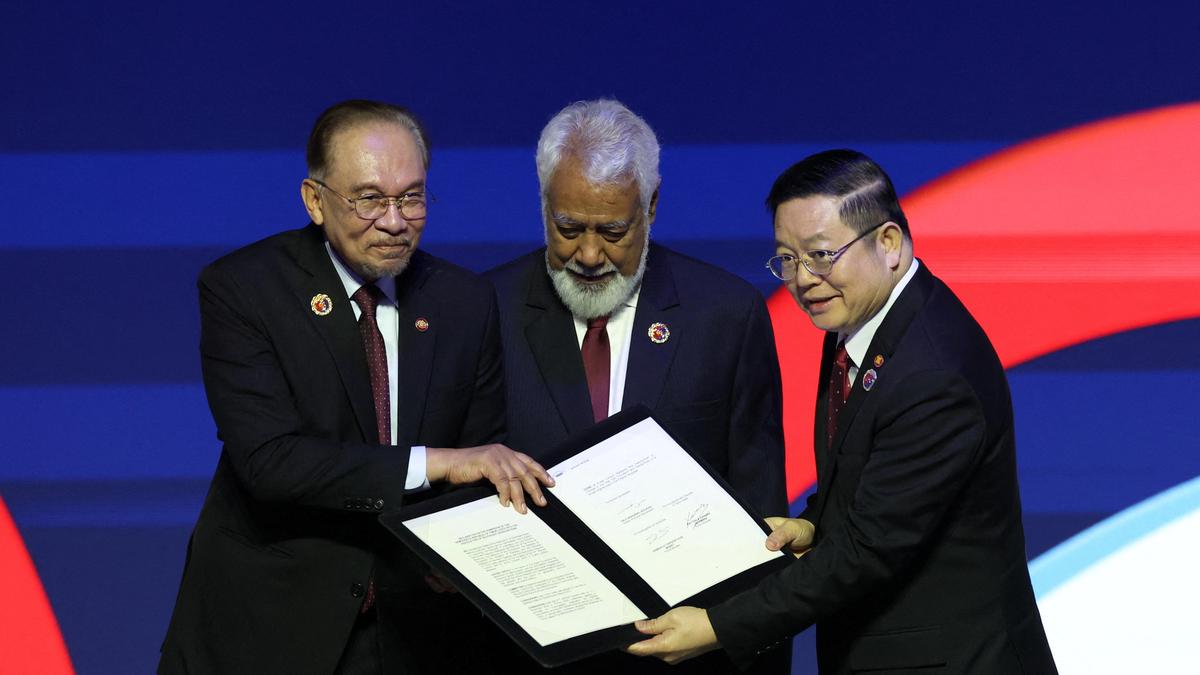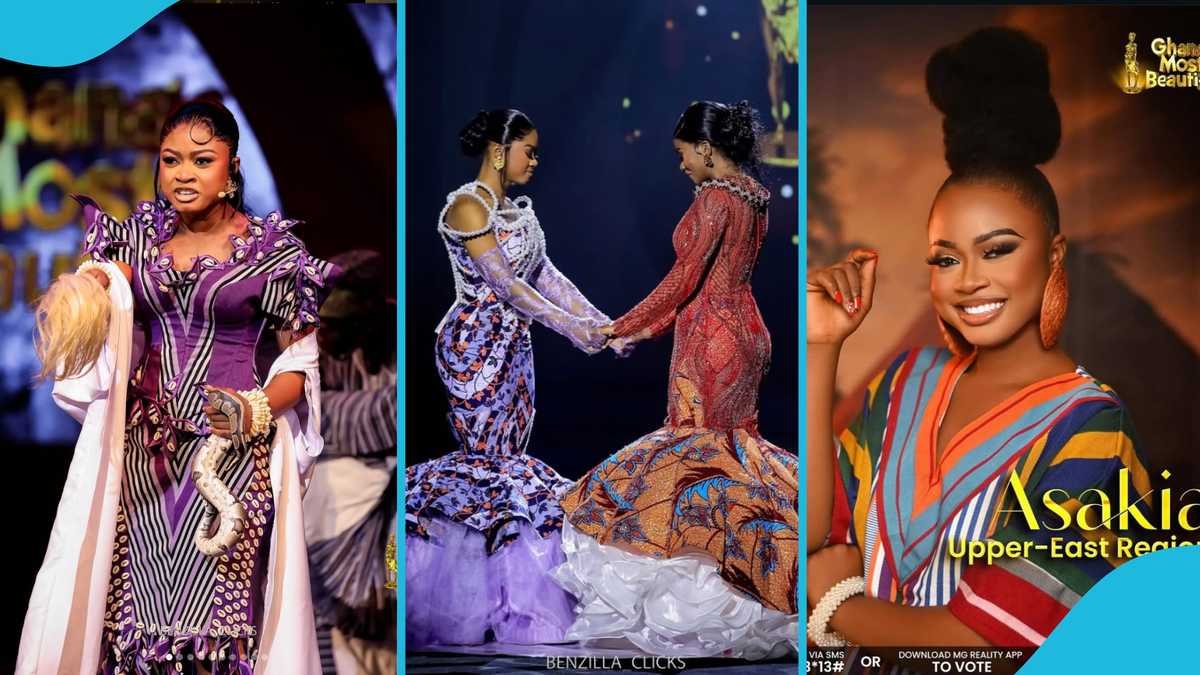Copyright ghanamma

The Business of Ghanaian Fashion (BoGF) Summit 2025 brought together key players from Ghana’s fashion, policy and business sectors to chart a sustainable path for the country’s creative economy. The event, held in Accra in mid October 2025, was organized by HSA PR and spearheaded by Fashion Nexus Ghana under the theme “Building a Sustainable Future for Ghana’s Fashion Industry.” It received support from the United Nations Educational Scientific and Cultural Organisation (UNESCO), African Continental Free Trade Area (AfCFTA) Secretariat, Ministry of Trade and Industry, Ghana Revenue Authority (GRA) and fashion house Christie Brown. Founder of Fashion Nexus Ghana and project lead for BoGF Hillary Andoh described the summit as the start of a national movement to build a united and competitive fashion ecosystem. “Today marks the beginning of a movement to strengthen and sustain the Business of Ghanaian Fashion. Our vision is to bring together fashion designers, manufacturers, textile producers, educators, policymakers and investors to build a connected private industry that reflects Ghanaian creativity, talent and entrepreneurial spirit,” she stated. The summit featured keynote sessions, panel discussions and policy roundtables focused on value chain development, education, sustainability and digital trade. Participants discussed strategies to strengthen Ghana’s position as a fashion powerhouse within Africa’s creative economy. The Business of Ghanaian Fashion Initiative seeks to bridge key gaps within Ghana’s fashion industry by fostering innovation, collaboration and investment. With the global fashion market valued at 1.84 trillion United States dollars, Ghana stands positioned to compete effectively on the international stage. The initiative’s impact goals focus on creating employment opportunities, attracting investment into the creative economy, enhancing the competitiveness of Ghanaian brands globally and promoting sustainability across the value chain. Edmond Moukala, Head of Office and UNESCO Representative to Ghana, described the 24 hour economy as a game changer for Ghana’s fashion industry, envisioning around the clock production, cross border collaboration and digital trade that meets global demand at any hour. “The 24 hour economy concept presents a transformative paradigm for Ghana’s fashion industry. Imagine a sector where production lines hum around the clock, where designers collaborate across time zones and where retail and e-commerce platforms operate seamlessly in catering to a global demand that never sleeps,” he stated. Aisha Ayensu, Founder and Creative Director of Christie Brown, urged stakeholders to move beyond merely admiring Ghana’s creative potential and instead harness it collectively as an industry where creativity and commerce work together to drive sustainable growth. “We need to stop romanticizing potential and start embracing it. Passion should not be treated as ours alone but as an industry, one wherein creativity and commerce speak the same language,” she revealed. Deputy Chief Industrial Promotion Officer at the Ministry of Trade, Agribusiness and Industry Kwasi Ofori Antwi reaffirmed government’s commitment to positioning Ghana’s fashion and textile industry as a major driver of economic growth and export diversification. The Ministry implements a policy framework that strengthens competitiveness, enhances skills, expands access to finance and promotes global standards across the value chain, he stated. Elsie Appau Klu, Technical Advisor to the Commissioner General of the Ghana Revenue Authority, expressed enthusiasm about the Authority’s partnership with Fashion Nexus Ghana. The current GRA administration sees institutions like Fashion Nexus as partners that must be engaged, understood and worked with, simplifying tax systems to enable meaningful contribution to national development, she noted. Daphine Lekipaika, Expert in Trade Services at the African Continental Free Trade Area Secretariat, highlighted that the AfCFTA framework offers significant opportunities for Africa’s fashion value chain by eliminating trade barriers, enhancing regional production and sourcing, and creating a unified continental market for Made in Africa fashion brands. The agreement offers Ghanaian designers access to a market of 1.3 billion consumers, creating export opportunities that dwarf the domestic market. The summit marked the culmination of preparatory work that began with the initiative’s launch on September 9, 2025, at Kempinski Gold Coast City Hotel. The flagship event on October 16, 2025, served as the launchpad for a year long Capacity Building Programme focused on fashion business, policy, education, investment readiness, and global market integration. Hillary Andoh emphasized that sustainability practices already embedded in Ghanaian fashion, including upcycling and use of natural materials, align perfectly with global brands now building circular economy credentials. What African designers have practiced out of necessity is now being rebranded as environmental innovation by European and American fashion houses, she noted. Through BoGF, Fashion Nexus Ghana aims to transform fashion into a driver of inclusive economic growth and national development. The initiative addresses persistent challenges including informality, lack of investment readiness, limited access to funding and weak production capacity. With over 60 percent of Ghana’s population under 25, the sector offers immense potential for job creation and youth entrepreneurship.



